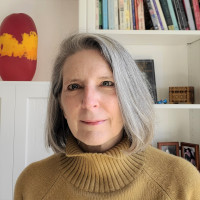
Pam is a well-known and well-respected open source lawyer. She has been working in open source since 2008, first working at Red Hat and then in private practice as the principal of Chestek Legal. She was elected to the Board of Directors for the Open Source Initiative in 2019 and since then has served as the Chair of the License Committee. As a longstanding Board member, Pam helped the Open Source Initiative achieve a number of goals the OSI reached in the past few years, including the hiring of an executive director and the transition from a working board to an advisory board. As chair of the License Committee, she improved the license review process by adding formal documentation summarizing the conclusions of the license-review list recommending or not recommending approval of the candidate licenses. In her legal practice, Pam counsels technology companies on licensing issues, business models, and trademarks.
How the candidate will contribute to the board
Pam hopes to continue her work on the License Committee, improving the processes and standards for reviewing and approving open source licenses, as well as contributing to the Open Source Initiative management generally.
Why the candidate should be elected
We believe Pam has been, and will continue to be, a strong proponent and advocate for open source software. She has extensive knowledge about open source licenses and their interpretation, which is of great value to the OSI in its mission. Consent I confirm you have the authorization to share the candidate's data with OSI and publicly in the internet.
Proposed by: GNOME Foundation

.jpg)